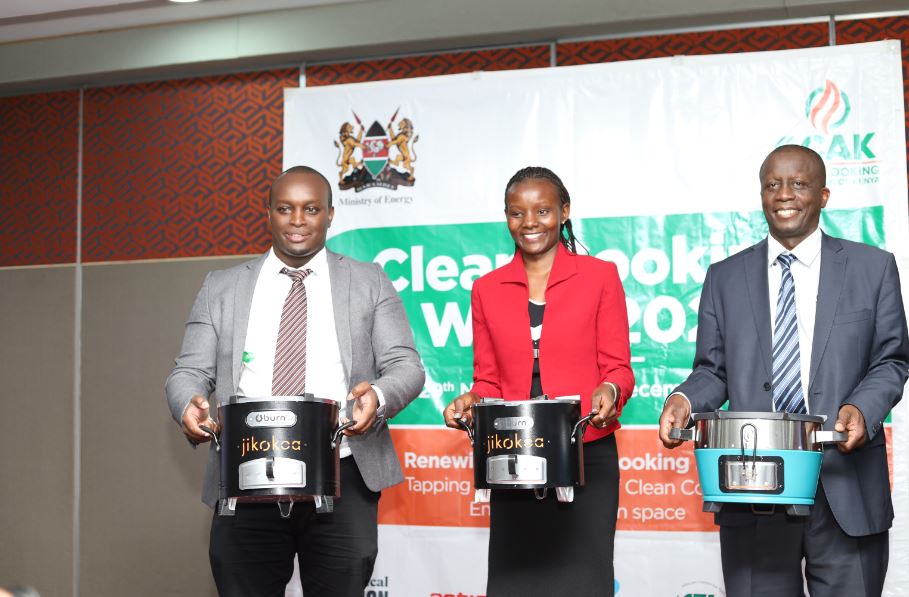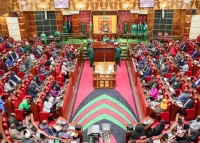The government plans to curb Kenya’s strong reliance on solid biomass fuels by the year 2028, especially in rural areas where over 80 percent of the households depend on firewood and charcoal as their primary sources of cooking fuel.
To achieve this, the government will collaborate with clean cooking sector stakeholders and support the development of appropriate policy frameworks, increased funding for clean cooking, and development of sustainable markets specifically LPG, electricity, clean biomass solutions, ethanol, and biogas.
In Kenya, up to 34 percent of wood fuel harvested is unsustainable, contributing to environmental degradation and climate change. Approximately 70 percent of households in Kenya still use a type of wood-stove as either their primary or secondary cook-stove, with a greater prevalence of 92 percent in rural areas. This corresponds to 64.7 percent (equivalent to 8.1 million) of households in Kenya using wood as their primary cooking fuel.
Speaking during the launch of the clean cooking week 2021 Principal Secretary, Ministry of Energy Maj. Gen. (Rtd). Dr. Gordon O. Kihalangwa says, “As a government, we have committed to gradually phase-out of the use of charcoal in urban areas by 2028 and transition all public institutions from use of biomass cooking fuels to higher tier cooking Solutions by 2025. Further, we will accelerate the adoption of and use of clean cooking technologies and fuels to 100 percent by 2028.”
Jechoniah Kitala, chair of, Clean Cooking Association of Kenya has said that there is a need to enhance sector coordination and action both within and outside of government for the country to achieve its goal for universal access to modern clean cooking solutions.
“Household energy plays a significant role in facilitating sustainable development due to its nexus nature with other elements of development hence we need to make it an integral part of countries’ policies,” said Kitala.
“Clean cooking technologies need attention if the country’s efforts to deal with pollution, reduce disease burden and mitigate adverse effects of climate change are to bear any fruits.”
The launch of the Clean cooking week 2021 aligns with Kenya’s commitment to achieving universal clean cooking by 2028 that was announced by the Cabinet Secretary, Ministry of Energy, Amb. Monica Juma during COP26 conference in Glasgow Scotland.
It is estimated that complications from Household Air Pollution (HAP) through inefficient stoves and fuels in claims 21,560 lives annually in Kenya according to a recent study by the Kenya Cooking Sector. The most affected people are the women and children below the age of five who spend most of their time with their mothers.
GIZ-Endev Component Leader at GTZ – Kenya Anna Ingwe called on the government and the development partners to put more effort into supporting innovation by youth and women.
“Kenya’s economy backbone comprises largely of SMEs, therefore, there is a need to be supported as they are expected to play a prominent role in improving the environment and creating job opportunities,“ she added.
It is estimated that complications from Household Air Pollution (HAP) through inefficient stoves and fuels in claims 21,560 lives annually in Kenya according to a recent study by the Kenya Cooking Sector. The most affected people are the women and children below the age of 5 who spend most of their time with their mothers. The benefits of the clean cooking sector will cut across health, environmental sustainability, income opportunities, and affordability.
Read: Twiga Raises Ksh5.5B to Fuel Continental Take-off
>>> Reduced Fuel Prices: Behind-the-Scenes Interventions Take Centre Stage


![In July, the government of Zanzibar, announced a new tax and residency programme for foreigners seeking to live and invest in the island. [Photo/ TripAdvisor]](https://businesstoday.co.ke/wp-content/uploads/2021/11/zanzibar-island-150x150.jpg)






Leave a comment